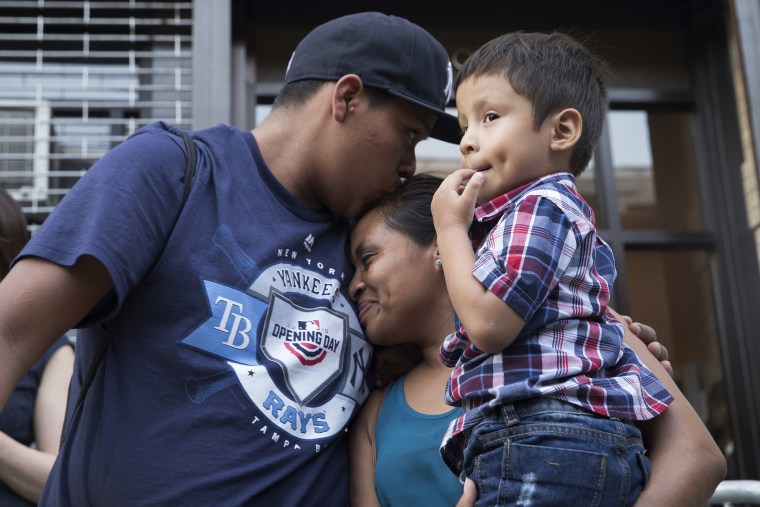The Trump administration said in a court filing Friday that around 2,551 migrant children aged 5 and older need to be reunited with their parents to meet a court-ordered deadline in less than two weeks.
A federal judge ordered the government to reunify these families by July 26 after the Trump administration's "zero tolerance" policy on illegal border crossings separated children from their parents. The Department of Health and Human Services noted in a statement later on Friday, however, that the number could change.
"This number represents the total possible cohort of minors who could potentially be subject to the court order, and, based on past experience, includes a significant number of minors who cannot or should not be reunified with the adults in question," HHS spokesperson Evelyn Stauffer said in the statement.
Earlier Friday, the judge who issued the order on reunifications, U.S. District Court Judge Dana Sabraw of San Diego, said that the government is making substantial efforts to comply with the ruling but urged them to increase their pace because of the number of children still separated
Nearly 60 of 103 children under age 5 have been reunited, according to Justice Department lawyers.
"There is substantial compliance," Sabraw said. “There is good faith being demonstrated in no uncertain terms and measures by the government.”

Sarah Fabian, an attorney for the Justice Department, said that since the government began the reunification with children under age 5, they plan to move on to those between ages 5 and 17. She claimed that some under the age of 5 were ineligible for reunification, giving as two reasons when parents have criminal histories or other adults may not have been children’s parents.
"Some of these individuals that I am talking about may be reunified at a later time," she said.
Between May 7 and June 20, the Trump administration instructed U.S. Customs and Border Protection to place any adult immigrants who crossed the border illegally in federal custody. Their children, meanwhile, were taken by U.S. Health and Human Services.
The American Civil Liberties Union brought the lawsuit that resulted in Sabraw’s late June order on reuniting separated children with their parents. Some of those parents may have been already deported.
Sabraw told the ACLU and Fabian Friday that once the children who are under age 5 are given travel documents by the government, they should be reunited with their deported parents within seven days.
Government attorneys also needed to provide frequent updates on family reunifications, Sabraw said, and asked that they provide greater details about their plans for continued reunification.
"I think it is important to begin reunifying now [and] reunify as we go,” the judge said, sharing his concern that delays to the process would continue.
To provide the ACLU greater transparency, the judge told Fabian to give them a list of the parents who remain in ICE custody as well as the separated children by 9 a.m. Pacific Time on Monday.
Sabraw also insisted that the government provide at least 12-hours’ notice before reunifications, so that families and support groups can better prepare for it.
The government protested, however, and Fabian asked that they only be required to share a small number of locations where family reunifications would occur.
Sabraw did not believe that to be a viable option.
"So much of this is just common sense and common courtesy," he said, later noting that reunification costs — including potentially necessary DNA testing — should be paid by the government.